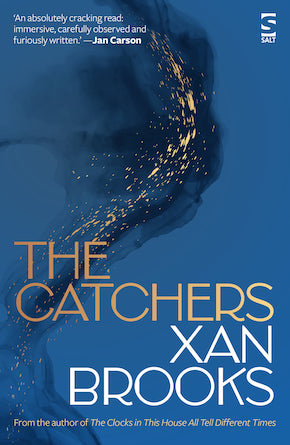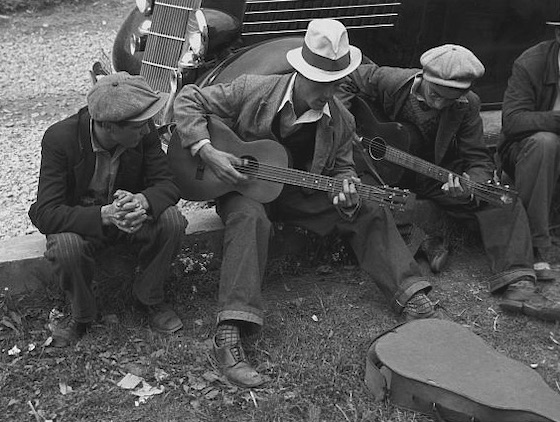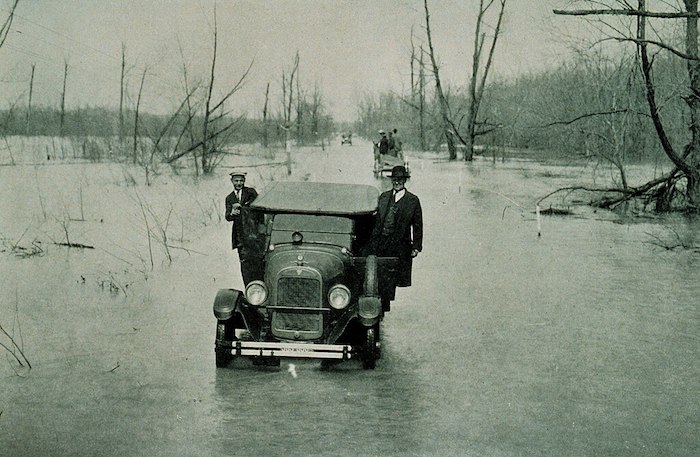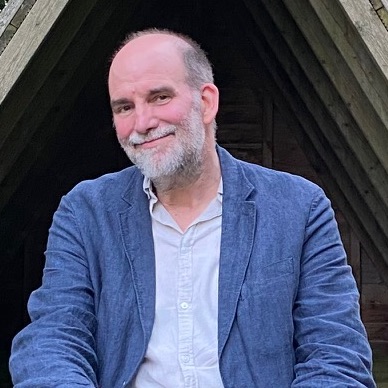The Hill-Country Music Contest
by Xan Brooks
HE HAD PULLED INTO SUTTON shortly after sundown, rocking and bouncing down the deserted main drag. His eyes were bloodshot and he was in need of a shave. The girl on the desk at the Bedford hotel glanced up from her ledger.
“You the recording fellow from New York?” she said.
“John Coughlin, that’s right.”
She looked him up and down. “You?” she said, unimpressed.
He had slept fitfully and awoken feeling sluggish – and now here came Bucky Garner with his loud voice and extravagant friendliness. Coughlin had pictured the men of the Far Corners as placid, leisurely types. The local agent, though, was as frisky as a colt. He could have run rings around Coughlin without breaking a sweat.
“You don’t talk much, do you, Mr Coughlin? I got to learn to do that, you’ll have to give me some pointers. Actions speak louder, that’s what people say.” Bucky blinked and beamed and held out a cigarette. “Smoke?” he said. “Me neither, it’s a dirty habit. But I’ll tell you, sir, I never leave the house without a pack all the same. I’ll give a cigarette to any fellow I meet and I couldn’t begin to guess the number of times that’s helped me out. I reckon that what I lose in cigarettes I make back in goodwill.”
“Yes, sure. Very smart.”
“Cross my heart. I couldn’t even begin to guess.”
The hill-country people had fought on both sides because they hated Confederates and Yankees alike and simply took aim at whichever soldiers were closest. Everyone was an outsider, everybody a threat.”
Hatless, in shirt-sleeves, they turned onto State Street. The town was livelier that morning, he saw. The stores had opened, flags snapped in the breeze and the housewives gathered outside Jenkins Meat Butcher. Motorcars pawed the road and honked wheezy greetings. Their gasoline fumes cut the resiny mountain air.
“Now you’ll say that I’m partial and well, sure, you’d be right,” Bucky said. “But you won’t find a finer base of operations than Sutton. First up, you’ve got the modern conveniences of a city like New York. And second, we’re surrounded by Appalachian hill-country people. And hill-country people means hill-country music. But you know that, Mr Coughlin, you know it better than me.”
“And you figure they’ll come? For the try-outs, I mean.”
“Hundred percent they’ll come. Whole town’s fit to burst.” He stopped to shake the hand of a dilapidated old soldier, bent at the waist by the weight of his medals. “You’ll come won’t you, Wilbur?”
“You bet,” said Wilbur.
Chuckling, Bucky turned back towards Coughlin. “He don’t even know what we’re talking about.”

Wherever you went in Sutton, the mountains went too. Whatever direction you faced, the scenery turned in sympathy: round-shouldered, thick with trees, full of mink, deer and bears. Appalachia. The Blue Ridge. George Washington rode his horse through the woods north of here, back in the days when he was a colonel in the militia and the hills were a stronghold for the Iroquois and Tutelo. After that came civilization, so-called. Wave upon wave of European settlers. Coal-mines and quarries, sawmills and roads. And yet still the place struck him as impossibly wild. In the states’ war, the hill-country people had fought on both sides – north and south – because it was said that they hated Confederates and Yankees alike and simply took aim at whichever soldiers were closest. Everyone was an outsider, everybody a threat. The rich upstate farmer; the genteel Dixie planter. The people of Appalachia wanted no part of either world. Mainly they wanted to be left alone, hidden in the woods, living in the same dog-run shacks that their great-grandfathers had built, sleeping ten or twelve to a room, drawing water from the well. Plank floors underfoot. Oiled paper serving as window panes. “I can see why they call it the Far Corners,” Coughlin had said, but the local agent had explained that it was only strangers who called it that. Men like Honest Jim Cope who came into town from the north.
“You go ask Wilbur what the Far Corners are and he’ll say it’s New York and Chicago. Hell, he’ll probably tell you it’s Lynchburg and Richmond.”
“Everybody’s Far Corners is different, you mean?”
“Sure,” Bucky said. “Except I’d never be able to say it as pretty as that.”
They turned off the street and into the cool darkness of Hank’s Food & Drink. The agent took a seat in the booth and smoothed down his pant-legs. He said he had something special to show Coughlin, an item in that day’s paper, but that they should at least order first because his stomach was growling. The radio rasped and chattered. Horseflies tapped the glass. Bucky waved for the waitress and demanded ham and eggs twice, brown toast on the side. He said, “Della, out of interest, are you selling much of that calamine tea?”
“Chamomile,” she said. “Not calamine.”
“You know what I mean. How much are you pouring on an average day?”
“I don’t know.” Her eyebrow twitched. “It ain’t so popular.”
“Yeah, and that’s because you keep hiding it on the shelf, like the ugly girl at the dance. You got to place it out front and make a big old fuss. ‘Ooh, look at this. Ain’t she a dandy?’. That way you get folk interested.”
The waitress looked to Coughlin for help. She said, “Customers don’t want it. So what am I to do?”
“God damn it, Della,” said Bucky and slapped the table in disgust.
Put out a song like that and a man could die rich and happy, which he supposed was what happened to Honest Jim if the recent stories were true.”
He had only been in the job a few months and was still learning the ropes, befriending the storekeepers, trying to understand what they liked so as to better provide it. That’s why he was so excited to meet the new catcher, John Coughlin, who had produced the scary ghost song. Certain songs sold well in certain towns; Bucky was still getting to grips with the various regions. But everyone liked Spider Joe, didn’t matter who you were. Imagine putting out a side like Only Me and Spider Joe or Did You Ever Dream a Dream. Put out a song like that and a man could die rich and happy, which he supposed was what happened to Honest Jim if the recent stories were true, that he died rich and happy in his car on the road, although Bucky had to say he didn’t believe it for a minute. Jim Cope dead? Not a chance, no sir. Not buying it.
Coughlin was finding it hard to get a word in edgewise. “No, it’s true, he’s dead. He ran off the road in the blizzard, only last week.”
“So they say. I reckon he’ll surprise us.”
“Christ sake, Bucky. They found the man’s body. It’s over. He’s gone.”
“Mercy.” Bucky stared out the window, allowing this news to settle. “Mercy,” he said. “Well, that’s clouded the day.”
When breakfast was served, the local agent perked up. Through a mouthful, he said, “I nearly forgot what I wanted to show you. Della, run fetch me the Bugle. You’re gonna love it. Page three.”
“You placed a notice?”
“Better.” He chewed and swallowed. “I placed a story.”
Coughlin made space on the table and peeled back the front page. The headline read, ‘New York City Contest Seeks Finest Hill-Country Musicians’. Below this was a byline: ‘BC Garner’.

The catcher raised an eyebrow. “You wrote this?”
‘The great city of Sutton this week commences a never-before-witnessed search to determine the finest musicians and singers from the beautiful Blue Ridge Mountain region. The top prize for the winning contestants – a life of guaranteed fame and fortune in the form of a music contract with the world-famous Humpty Recording Company.’
He opened his mouth to protest, but the agent flapped a hand to urge him on.
‘The inaugural Hill-Country Music Contest will be held in the ballroom of the beautiful Bedford Hotel on State Street on Saturday April 9 between the hours of midday and 4 p.m., with the contestants all judged by the famous Mr John Coughlin, creator of the much-loved and best-selling record Only Me & Spider Joe. Ahead of his arrival in Sutton, Mr Coughlin told the Bugle: “I’ve heard a rumor that musicians of the Blue-Ridge Mountain region are the finest on the planet. I plan to gather as many as I can find and take them with me to New York.”’
Coughlin started. “I said no such thing.”
“Yes, but that’s OK, I wrote it in. It’s all about tickling the public’s buying bone. Once you’ve got their attention, they’re more likely to show up.”
Della dipped to refill his mug of coffee. Coughlin fortified himself with a mouthful and returned his gaze to the page.
‘Upon hearing the news of the contest, scores of Hill-Country musicians were reported to already be on the road towards Sutton, driving just about as fast as their wheels will carry them. Preparations are underway to provide them with the warmest of Tennessee welcomes. Local resident Bucky Garner told the Bugle: “I’ve lived in Sutton my entire life and this is the most major event the city’s had in years. I don’t know of a single soul who won’t be lining up outside the Bedford Hotel before noon on Saturday April 9.”’
Bucky by now was fidgeting with excitement. “What did I tell you? How’s that for a story?”
Coughlin stared. “You can’t write a story and be in it as well.”
“Sure I can. It was the best quote I could find.”
“But.” He rubbed at his temples. “But no, Bucky, look at this. People see your name up here and your name down here. You think they’re not going to make the connection?”
“Oh,” Bucky said. “Well, I guess you’re right.” And it was apparent that the agent’s confidence was not quite unwavering, because he took criticism hard and flinched when he was scolded. All at once he appeared to be on the brink of tears.
“Hey,” Coughlin said, embarrassed. “I’m not saying it’s a bad story. And it’s much better than a notice.”
Two middle-aged women were strolling past the glass. The agent spun in his seat to wave at them with gusto, although Coughlin had the sense that this performance was mainly for his own benefit and was a means of restoring his equilibrium. If so, it had the desired effect because when Bucky turned back from the glass he was his old self again. “Della,” he called. “When are we getting some more toast over here?”
He plucked at his pant-legs. He smiled at his fork. “The trouble with me, I go at everything full-steam. A man asks for moonshine and I think I’ve got to bring him the moon. Which isn’t what the man wanted, what he wanted was moonshine. I keep making the same mistakes. You asked for a notice and I gave you a story. So you’ve got every right to be put out. That’s strike one against me.”
When Coughlin motioned for him to slow down, Bucky agreed that this was his problem exactly, the catcher had put his finger right on it, exactly. He needed to slow down and listen and not be leaping about like a fool. He was grateful to Coughlin for putting his finger right on it. “And I swear to God here and now, with Della as my witness, that I’m never going to let you down again. You can count on that.”
“Enough,” Coughlin said. “It’s not a big thing” – and no doubt this was true. But over the course of the following week it seemed he could not open the Bugle without encountering another story which bore the local agent’s byline and contained supporting quotes from him, too. BC Garner wrote – in a tone of stern disapproval – about a logging truck which had shed a portion of its load near the schoolhouse. He wrote with lavish affection about a deceased states’ war hero, Captain Clayton Peerless. He reported on the damage caused by the winter floods and wrote about the surging popularity of herbal tea among the more forward-minded citizens of Tennessee and Virginia. He profiled the hill-country musicians who had camped on Gatlin’s farm outside town. Local resident Bucky Garner, he wrote, had already heard them rehearsing at night in the fields and had been for several minutes convinced that they were God’s own angel choir.
from The Catchers (Salt, £10.99)
—

Xan Brooks is an award-winning writer, editor and broadcaster. He was one of the founding editorial team at the Big Issue magazine and spent 15 years as a writer and associate editor at the Guardian. His debut novel, The Clocks in This House All Tell Different Times, was listed for the Costa First Novel Award, the Authors’ Club Award, the Desmond Elliott Prize and the Walter Scott Prize. The Catchers is published in paperback by Salt.
Read more
@xanbrooks
@saltpublishing

